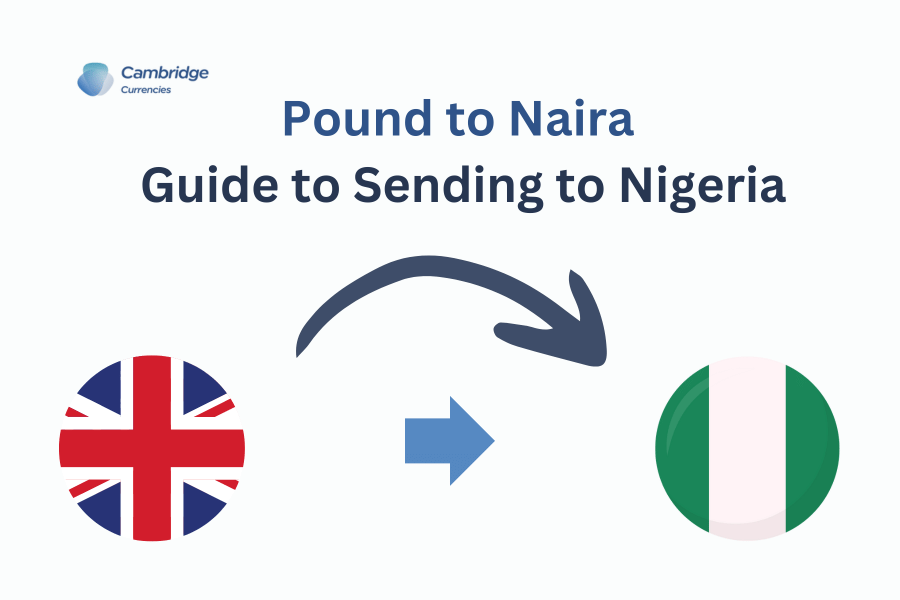Sending money from the UK to Nigeria is common for many. People do it to support family, conduct business, or invest. It has never been easier. However, each method comes with its own set of advantages and challenges.

This guide provides a detailed overview of the most effective ways to send money to Nigeria. It includes practical tips to ensure your transfers are smooth, secure, and cost-effective.
Why Send Money to Nigeria?
People send money to Nigeria for a variety of reasons, including:
- Family Support: Providing financial assistance for everyday expenses, education, or healthcare.
- Business Transactions: Paying suppliers, contractors, or investing in local enterprises.
- Investment in Real Estate: Funding property purchases or construction projects.
- Special Occasions: Sending money for weddings, birthdays, or other significant events.
Best Methods to Transfer Money
There are numerous options available. It is crucial to choose a method that suits your needs best. Consider cost, speed, and convenience. Here’s a look at some of the most popular ways to send money to Nigeria.
1. Online Money Transfer Services
Companies like Wise, Remitly, and Payoneer provide easy-to-use online platforms that allow for quick money transfers.
- Pros: Often offer competitive exchange rates and low fees. Transfers can be quick, with funds available in hours or even minutes.
- Cons: Internet access is required. Transfer limits may apply, especially for new users.
2. Bank Transfers
Traditional bank transfers involve sending money directly from your UK bank account to a Nigerian bank account.
- Pros: Secure and reliable, particularly for large amounts. Most UK and Nigerian banks offer this service.
- Cons: Can be slow, taking several days. Generally, higher fees and less favorable exchange rates compared to other methods.
3. Cryptocurrency Transfers
With the rise of digital currencies, some are choosing to send money using cryptocurrencies like Bitcoin.
- Pros: Fast, often near-instant transfers. Can be cheaper for large sums if both sender and receiver are comfortable using crypto.
- Cons: Highly volatile exchange rates and regulatory issues. Requires knowledge of digital wallets and cryptocurrency markets.
4. Mobile Money and E-Wallets
Services like OPay and Paga offer digital wallets. They provide mobile money services. This offers a modern solution for receiving funds in Nigeria.
- Pros: Instant access to funds, which can be used for various transactions or withdrawn in cash. Convenient for recipients without bank accounts.
- Cons: Requires both sender and receiver to use compatible mobile wallets. Limited by mobile coverage and smartphone access.
5. Money Transfer Operators (MTOs)
Western Union, MoneyGram, and Ria are popular for their widespread agent networks. They offer various payout options, including cash pickup and bank deposits.
- Pros: Fast and reliable. Suitable for recipients without bank accounts, with many pickup locations across Nigeria.
- Cons: Can be expensive, with higher fees and less favourable exchange rates.

Key Considerations When Sending Money
1. Exchange Rates and Fees
Exchange rates can significantly impact the amount your recipient receives. Even small differences can add up, especially for large transfers. Always compare rates across different services and consider all associated fees.
2. Transfer Speed
The urgency of your transfer may influence your choice. While some methods offer instant transfers, others may take several days. Weigh the importance of speed versus cost.
3. Security and Reliability
Always use reputable and regulated providers to ensure the safety of your funds. Look for services with strong security measures, such as two-factor authentication and encryption.
4. Convenience for the Recipient
Consider the convenience for the person receiving the money. Do they have easy access to a bank? Would they prefer a cash pickup or mobile money transfer? Tailor your choice to their needs.
5. Customer Support
Good customer service can be crucial if you encounter any issues. Choose providers with accessible and responsive support channels.
Steps to Send Money to Nigeria
- Choose a Transfer Method: Select a service that best fits your needs in terms of cost, speed, and convenience.
- Create an Account: Sign up and verify your identity with the chosen service, if required.
- Enter Transfer Details: Provide the necessary information, including the recipient’s name, bank account details, or mobile wallet number.
- Make Payment: Complete the payment using your preferred method, such as bank transfer, debit/credit card, or cryptocurrency.
- Confirm and Track: Confirm the transaction and use any tracking options available to monitor the transfer.
Practical Tips for a Smooth Transfer
- Check Exchange Rates Frequently: Rates can fluctuate. Timing your transfer to get the best rate can save you money.
- Look for Promotions: Some services offer discounts or bonus rates, particularly for first-time users.
- Avoid Last-Minute Transfers: Planning ahead can help you avoid paying extra for expedited services.
- Double-Check Details: Ensure all recipient details are correct to prevent delays or errors.
- Be Aware of Transfer Limits: Know the maximum amount you can send and any associated regulations.
Frequently Asked Questions When Sending Money to Nigeria
Q: How quickly can I send money to Nigeria?
A: Transfer times vary. Online services and MTOs can be instant, while bank transfers may take 1-5 business days.
Q: What do I need to send money to Nigeria?
A: You’ll generally need the recipient’s full name, bank account details or mobile wallet information, and your payment details.
Q: Are there limits on how much I can send?
A: Yes, limits vary by service provider and payment method. Some services have higher limits for verified users.
Q: Can I send money to a mobile wallet in Nigeria?
A: Yes, mobile money services like OPay and Paga allow transfers directly to a recipient’s mobile wallet.
Q: What should I do if something goes wrong with my transfer?
A: Contact the service provider’s customer support immediately with your transaction details for assistance.
Conclusion
Sending money from the UK to Nigeria offers a range of methods to suit different needs. You might prefer the traditional route of bank transfers. Alternatively, the speed of online services could appeal to you. For those seeking modern convenience, mobile money is a great option. There’s a suitable option for everyone.
By considering factors like exchange rates, fees, and recipient convenience, you can ensure a smooth and efficient transfer. Remember to stay informed about the latest services and promotions to make the most of your money. Happy sending!

